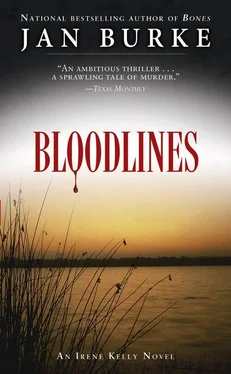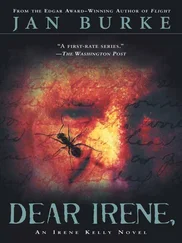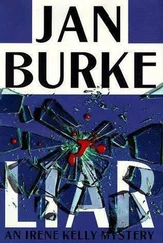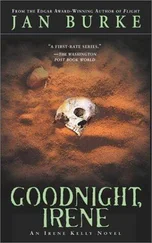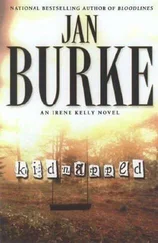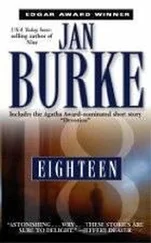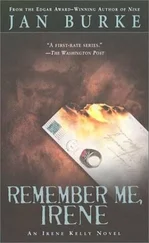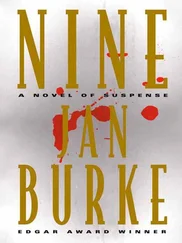I just shook my head.
“Well, I will admit you have a reason to be upset,” she said.
Of course I had a reason to be upset. The legendary O’Connor had just stabbed me in the back.
“Would you be happier over in features?” Lydia asked.
I glared at her.
“No,” she said. “Stupid thing to ask.”
“You should be working in news, and we both know it.”
“I don’t want to have to deal with what you’re putting up with,” she said.
She meant the hazing I was experiencing in the newsroom.
My first job after college didn’t take me to the Express. The Express only had openings in features, not news. My first question on any job interview was, “Do women cover hard news for this paper?” The answer was seldom an unqualified “Yes.” At the Express, the answer was, “Once upon a time we did, but not now. Maybe someday, if we like your work in features, we’ll give you a shot at it.”
Someday wasn’t soon enough, so I went to Bakersfield, where there was an opening in news on the Californian. As an added benefit, I could get away from the embarrassment I felt when I was dumped by a creep I had dated in college-the number-one inductee in my Dating Hall of Shame.
Lydia stayed in Las Piernas and took a job in features. Not so many years earlier, the features section was known as the “women’s pages.” Lydia wrote about cooking. The editor of the food section left the paper about eighteen months later, and the next thing you know, Lydia was promoted.
I’d been gone from Las Piernas for two years. Now I was back, and thanks in part to Lydia’s help, I was able to land a job at the Express, too.
The first day I walked into the newsroom, I discovered with no surprise whatsoever that its occupants were almost all white (the sole exception: Mark Baker, who is black) and almost all old (I counted four who were under forty, and Mark was one of them). H.G., the city editor, was pushing sixty. He was a quiet, cynical man who smoked cheap cigars and whose rugged face seemed to have only two expressions: one indicated his usual state of unflappable, contemplative calm and the other mild, private amusement. He led me to my desk wearing the former and walked away wearing the latter. The cause of the change might have been the shock on the faces of his fellow newsmen. The leading caveman, who I later learned was known as Wildman Billy Winters, came up to me and said, “Honey, you’re in the wrong room. Women write for features-down the hall.”
I was ready to reply when the publisher, Mr. Winston Wrigley II, strode out of his office and said, “She’s in the right room, Bill. And she’s not the first woman to work here. Ask O’Connor-Helen Swan was one of his mentors. Ms. Kelly was taught by Helen-and Jack, too. That’s more than good enough for me.”
It took me a moment to recall that Helen Corrigan had been Helen Swan before she married. The journalism program at the college had three or four former staffers from the Express on the faculty. Helen was easily my favorite instructor at Las Piernas College.
Another favorite was Jack Corrigan, who had taught there, too. He had died of a stroke six months before I started working at the Express, while I was still up in Bakersfield. I hadn’t learned of his death until after the funeral. Hardly able to talk for crying, I’d called Helen. She told me it was quick, that he had been among those he loved when it happened.
“Every morning after he turned fifty, the first thing Jack would say was, ‘What a pleasant surprise,’” she said. “I suppose that was because he believed that anyone who had lived as hard as he did shouldn’t take any new day for granted.”
Thinking of her that first day in the newsroom of the Express, I vowed to find time to visit her.
My first weeks in the newsroom of the Express weren’t especially happy ones. About a third of the men were openly hostile or patronizing. I heard the word “honey” more times than a beekeeper. Some, like Bill Winters, treated me as an occupying force, my desk a beachhead taken by the enemy. Others tried to pretend I was invisible. A few didn’t seem to have any problem with it. Like H.G. and the news editor, John Walters, they were content to watch events unfold, and neither helped nor hindered me. That was fine. I figured anyone who didn’t hinder me provided all the help I needed.
Then there were those who thought Winston Wrigley II had hired me to “improve the decor,” as one of them put it-inveterate oglers, and generally the most repulsive guys in the building.
I wasn’t held dear by most of the women staffers, either. I saw them every time I wanted to use the bathroom, because the newsroom of the Express had no women’s room nearby. You didn’t even need to step out into the hall to find a men’s room. There was one right off the newsroom.
There were three women’s bathrooms in the entire building: one downstairs, near classified advertising, where the staff taking calls for ads was entirely female; one upstairs, near the executive and business offices of the paper (where the typing pool and payroll clerks were female); a third on the same floor I worked on. Same floor, but reached through a maze of hallways, and at the far end of the large open room that housed the features department. It was as if whoever designed the building wanted to make sure that no one ever brought a tampon anywhere near the newsroom.
So I had to allow time for the hike when nature called, and it was easy to see that I was as much an outsider among the women in the features department as I was among the men in the newsroom. Whenever I entered this domain, there was a noticeable pause in the clatter of IBM Selectric typewriters all across the room. The faster a features reporter went back to typing, the more likely I thought we’d get along once the novelty of my situation wore off. Lydia was there, of course, but in those early days we went out of our way not to spend time together at the paper, so that we wouldn’t be accused of being unprofessional or wasting company time. We seldom spoke more than a word or two of greeting to each other until after work. Later I learned that some of these women-most of whom had worked for the paper for several years-had previously tried to move over to the news side. They had been turned down. One more reason I was so popular.
I could have eased some of this, I’m sure, if I had gone drinking after work with the staff, or out to dinner with “the girls.” The minute I was finished with work, though, I had to hurry home to my father.
I almost hadn’t taken the job in the first place. I half-hoped Mr. Wrigley would tell me that he still didn’t have a job opening for a woman in news, so that I could come back home to my dad and say, “I gave it my best shot, and it didn’t work out, so I’m going to stay home and take care of you.” But I’m not sure twenty-four hours a day of his rebellious daughter would have given my father much peace of mind, and my whole reason for coming back to Las Piernas-leaving behind a job I liked and a man I wanted to get to know better-was to make life easier for my father, to have time with him while I could. It did not seem likely that much time was left in that life.
My problems with O’Connor began on a Thursday, the day before I decided he was an asshole. Before then, he had merely been grim-faced and standoffish, but he was that way with everyone.
That Thursday, I had received permission from my city editor, H.G., to take a couple of hours off to take my dad to a doctor’s appointment-a follow- up visit after his first major cancer surgery. Part of Dad’s stomach was gone now, and he was weak and thin, but we were relieved: if the cancer had been worse, they would have taken the whole thing. He couldn’t eat much, he got sick a lot. He slept most of the day.
Читать дальше
